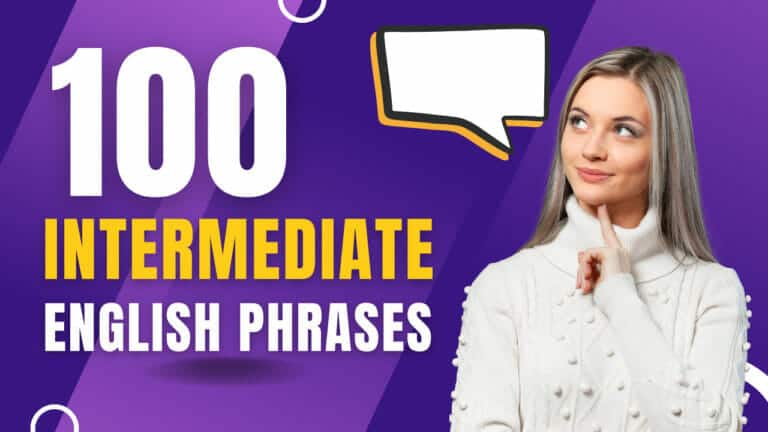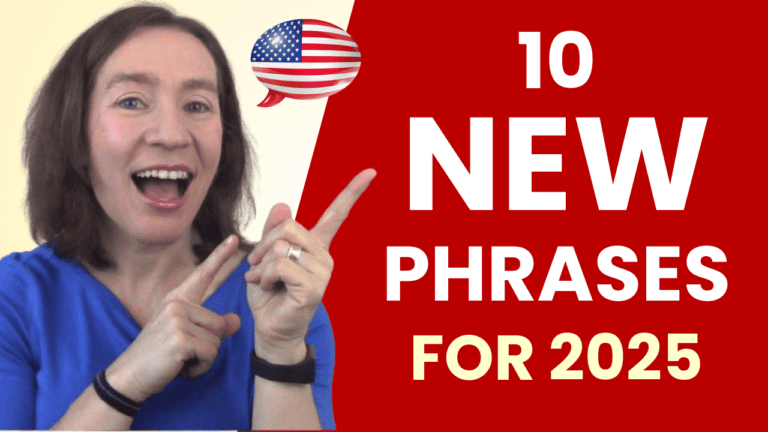
Transcript:
Hi students, it’s Shayna from espressoenglish.net, and today I’m going to teach you a casual conversational expression that native English speakers use to ask why.
If you’re watching this video and you’re interesting in learning conversational English for daily life, I have two courses that specialize in that. They’re the Everyday English Speaking Courses levels one and two, and each lesson is based on conversations. For more information about that, click on the link in this video or in the video description.
All right, so what’s this expression? Well, you might have heard it before and maybe you were confused because it didn’t seem to make sense. The expression is how come?
How come simply means why, but if you’re trying to translate it into your native language, it would really be confusing because you’re not coming or going anywhere. How does it translate to why? And that’s why I always say you should not translate. You should learn English expressions in context.
So let’s say your friend quit his job and you could ask him, “How come?” if you’re curious about his reasons and his motives. Again, it simply means why. Or, if you’re talking about your favorite movie and the other person says, “Oh, I don’t like that movie,” then you could ask, “How come?” because you’re curious about their reasons for not liking the movie, and then they would tell you why they don’t like it.
You can use how come by itself as a question, or you can use it to start a longer sentences which is a question, but there are some little grammatical considerations that we have to keep in mind. Let me explain.
You can ask, “Why did you quit your job?” When asking questions with why, we need an auxiliary verb and in the past – that’s did. But if we ask the same question with how come, we don’t use the auxiliary verb. We say, “How come you quit your job?”
Now, that’s the case for positive auxiliary verbs – do, does, and did – but with negative auxiliary verbs, we use them with how come questions, but the word order is a little different.
In the case of the other person not liking your favorite movie, you could ask, “Why don’t you like that movie?” We use the auxiliary verb, the negative auxiliary verb don’t before you. Why don’t you like that movie, but if you ask with how come, we use don’t, but we switch the word order. We say, “How come you don’t like that movie?” Same question, just a slightly different structure. I don’t know why that is. It’s just the way we form questions using how come.
Let’s say your friend was supposed to call you and she didn’t, so you could ask, “Why didn’t you call me?” or, “How come you didn’t call me?” If it’s a negative auxiliary verb, then we use it in how come questions, but we put it after the subject. How come you didn’t call me?
What about if we have a question with a form of the verb to be, so am, is, or are? Well, we use these in questions with how come, but again, the word order is switched, so you could ask someone, “Why are you studying English?” That’s a question in the present continuous. Why are you studying English? Or, you could say, “How come you’re studying English?” You can see that are changed from before the word you to after.
Simple, right? Well, I’d like to see you practice, so why don’t write a question in the comments using why and the equivalent question using how come. It’s good to practice these things so that you can use them more easily when you speak, and again, if you’d like to get more information on my Everyday English Speaking Courses, click on the link in this video. Like I said, there’s two levels of the course. One is a little easier and the other one is more advanced, and these courses teach you the phrases that native English speakers use all the time for situations in daily life.
Level two focuses even more on these informal expressions because spoken English, conversational English, informal English is full of casual, informal expressions that you might not learn in a textbook, so check out the courses. I think you’ll really enjoy them.










